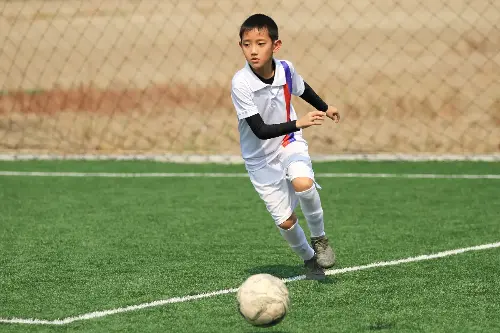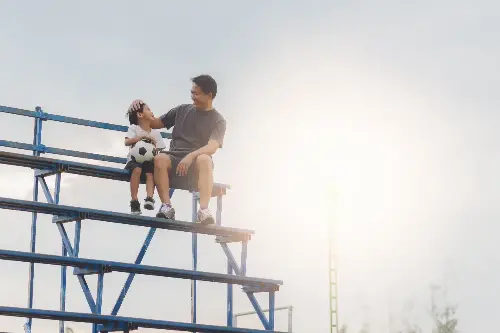For many parents across Southeast Asia, sports are often seen as extracurricular fun—a way for children to burn off energy after school or simply make new friends. However, the benefits of sports reach far beyond the pitch, the pool, or the court. Recent studies and expert opinions highlight that regular participation in sports doesn’t just keep young muscles strong. It sharpens minds, builds crucial life skills, and can even lay the foundation for a successful future.

BUILDING LIFE SKILLS FROM AN EARLY AGE
Teamwork and Communication
One of the most valuable lessons children learn through sports is how to work as part of a team. Whether they’re passing a football, running a relay race, or synchronising moves in volleyball, young athletes must collaborate, compromise, and communicate to reach a common goal. Such experiences teach kids how to listen, express themselves effectively, and resolve conflicts—the very skills that are vital in the classroom, workplace, and beyond.
Leadership and Responsibility
Sports offer children early experiences of leadership. Captains, for example, are often responsible for encouraging their teammates and making quick decisions under pressure. But every player, not just the captain, learns to be accountable for their actions—both successes and mistakes. Many coaches agree that these skills help children develop resilience and a strong sense of responsibility, qualities that universities and employers prize.
DEVELOPING MENTAL TOUGHNESS AND EMOTIONAL RESILIENCE
Perseverance Through Adversity
Loss is a part of every athlete’s journey—missed goals, match defeats, or not making the starting line-up. Through sports, children learn how to accept disappointment, strive for improvement, and try again. A study published in the journal “Frontiers in Psychology” revealed that children who participate in sports display greater emotional control and higher self-esteem. This mental toughness, developed on the sports field, helps them tackle academic pressures and future career challenges more effectively.
Confidence Through Achievement
There’s a unique confidence boost that comes from learning a new skill or mastering a difficult move. When children score their first goal or swim a personal best, they gain faith in their abilities. Over time, this self-belief spreads into other areas of life, empowering kids to set ambitious goals and pursue their passions with determination.

IMPROVING ACADEMIC PERFORMANCE AND COGNITIVE SKILLS
Sharper Focus and Time Management
It might surprise some parents, but active children often perform better academically. Research from the American College of Sports Medicine has shown that youth who are regularly active have superior concentration, memory, and classroom behaviour. Balancing practice schedules with homework also encourages kids to manage their time wisely—a skill they’ll need throughout their lives.
Learning from Mistakes
Sports teach more than just physical skills. Children who participate learn how to analyse their own performance and identify areas for growth. This process of reflection and self-improvement is the same approach taken by top scholars and professionals worldwide. By normalising mistakes and embracing them as opportunities to learn, sports instil a growth mindset that benefits children far beyond the sidelines.
BUILDING SOCIAL CONNECTIONS AND CULTURAL AWARENESS
Friendships Beyond Borders
In Southeast Asia’s increasingly connected communities, sports become a natural bridge between cultures and backgrounds. Local sports teams, school tournaments, and even regional games encourage children from different walks of life to bond, collaborate, and celebrate diversity. These relationships foster empathy and open-mindedness, preparing young people for life in a globalised world.
Positive Role Models
Sports often connect children with positive adult mentors—coaches and older athletes—who model discipline, perseverance, and good sportsmanship. In many Southeast Asian countries, sport legends and icons serve as national heroes, inspiring both boys and girls to dream big and work hard.

SUPPORTING A HEALTHY AND ACTIVE FUTURE
Combating Modern Lifestyles
With the rise of digital devices and urban living, today’s children spend less time outdoors and more time on screens. Regular sports participation helps counter sedentary lifestyles, reducing the risk of obesity, diabetes, and mental health issues. The healthy habits kids form now can last a lifetime.
Empowering Parents and Communities
Parents play a key role by encouraging children to explore various sports—not just those that might lead to competitions or scholarships, but those that spark joy and keep them active. Communities that invest in safe, accessible sporting facilities help ensure all young people have the chance to benefit.
Champions, it turns out, really do start young. When children participate in sports, they’re not just building stronger bodies—they’re building the skills, confidence, and connections that carry them towards a brighter and more successful future. Whether your child is aiming for a medal or just enjoys playing with friends, cheering them on from the sidelines may be the smartest investment you ever make.
